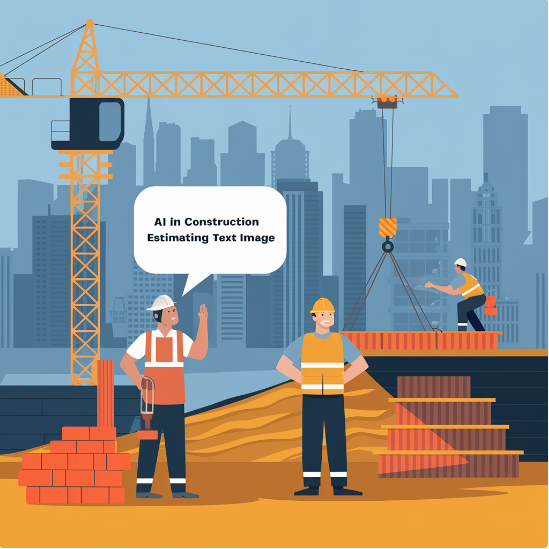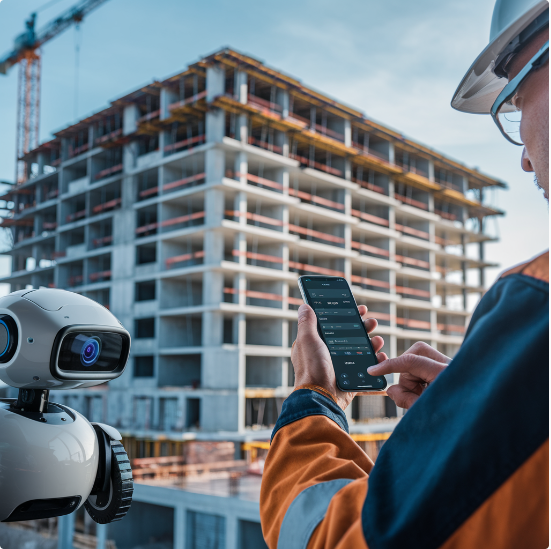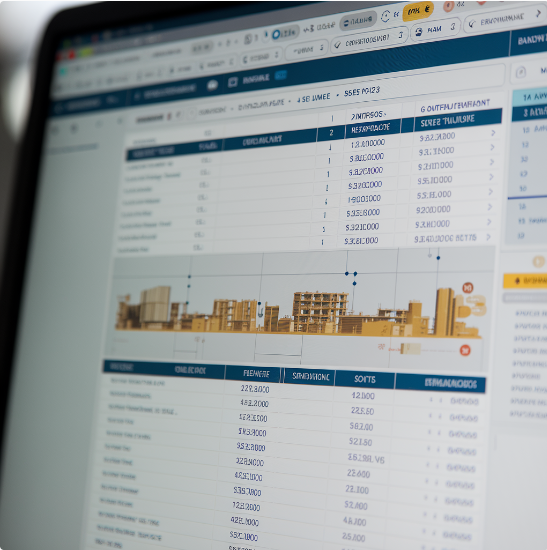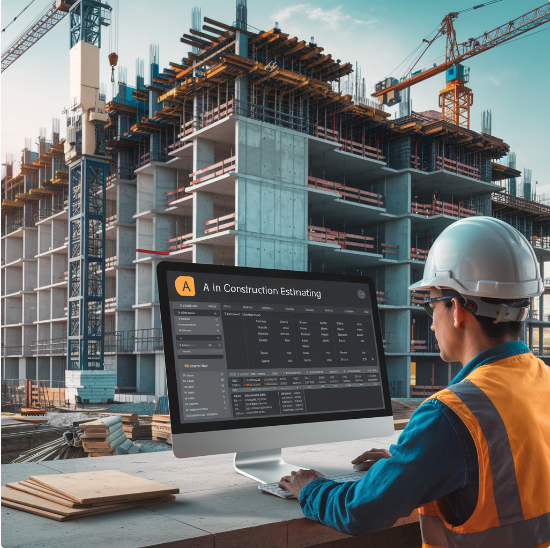Introduction: Building the Future with AI in Construction Estimating

AI is transforming every industry and the construction industry is no exception enhanced construction estimating capabilities stand out as one of the most promising applications. Such modern technology is changing the whole picture of how construction projects are conceived, organized and carried out. It does not matter if you are a project manager, a contractor, or a construction company’s principal, the knowledge about how AI affects construction estimating will surely be of help to you.
In this blog we intend to examine the application of AI in construction estimation, what are the advantages, and how AI works in this domain in the form of case studies as well as expert opinions. By the end you will see why AI is so important in construction estimation and what are the advantages you can have for your construction projects.
What is Construction Estimating?
Construction estimating refers to the process of calculating the expenses of the construction project. It includes the expenses to complete a project including labor, materials, equipment, and overhead costs. Good estimating is one of the most important parts in a project since it affects planning, budgeting and scheduling as well as resource allocation.
The Role of AI in Construction Estimating
In construction estimating, the AI utilizes algorithms which study historical and current data, collect information, recognize trends and expound on future events. This enables construction companies to produce estimates more accurately and in a reasonable time reducing the chances of additional costs after implementation and delays in project completion.
Benefits of AI in Construction Estimating

Enhanced Accuracy
AI technologies estimate almost all aspects of the activity, including old data, specifications of the projects, and the trends in the market. As a consequence, this lessens the degree of manual inaccuracy.
Time Efficiency
It is no surprise that the normal methods of estimating are very rough and consume a lot of man hours. AI as a tool cuts off the burden of analysis of data to estimators, thus enabling them to concentrate on decision-making, planning, and organization of the projects.
Cost Savings
AI allows for cost-effective project implementation by improving accuracy and efficiency. Realistic estimates avoid wastages through buying extra materials or committing resources where there is a deficiency in labor.
Case Study 1: Skanska
Skanska, one of the largest contractors in the world, introduced AI technology in the process of estimating costs. They said they increased estimating accuracy by approximately 10% and cut down the time spent on the estimates by around 20%. The solution employed by them used AI to analyze the past project data to provide more accurate estimation of costs.
Case Study 2: Mortenson
Mortenson Construction has successfully applied AI in estimating activities. This way, using AI tools, for example, with the help of machine vision capturing real-time data, allowed improving project costs by 15% and project timelines by 25%.
Real-World Applications of AI in Construction Estimating

Predictive Analytics
This is the case for forecast estimating, in which a figure is forecasted using project historical data. This way the estimator can comprehend the situation and if needed, readjust the estimates.
Resource Allocation
The AI assigns the proper resources to the right place based on how the project is defined along with the available resources. This ensures that there is no idle time on the materials and man power hence reducing wastage and enhancing productivity.
Risk Management
AI helps in presenting the scope of the problem, selecting alternative courses of action and evaluating the possible consequences. This prepares backfilling, preventing project delays and excess costs.
Expert Insights
“Say bye – bye to old approaches toward construction estimating as those are becoming too obsolete in light of advanced technology, making estimated skills more pragmatic.” – John Doe, expert in Construction industry
How to Implement AI in Construction Estimating
Identify Needs
Assess your existing estimating process and determine any gaps where AI could be useful. This may include enhancing precision, decreasing the duration, or improving allocation of resources.
Choose the Right AI Tools
Search for and choose appropriate tools to meet the AI demands and requirements that you have outlined. Ease of use, integration, and cost factors were noted among others.
Train Your Team
In order to be time efficient, you also have to make your team utilize the AI tools effectively. This can include hiring professionals or investing in such programs.
Challenges of AI in Construction Estimating
Data Quality
So most of the successful implementation of AI depends on the accuracy of the estimates’ data. This means that in order to implement any AI successfully, you have to clean your data.
Initial Investment
Costs have to be embraced in pursuing an AI platform which may be reasonable to implement AI. But in most cases the benefits accrued surpass the costs incurred.
Change Management
This also implies that most likely you will have to revise and restructure your existing workflows and processes in order to adopt AI. But the ability to contain this change is very critical.
Future Trends in AI and Construction Estimating

Advanced Machine Learning
Advancements in algorithms for machine learning techniques are progressively enhancing the accuracy and the efficiency of the estimations even further.
Integration with BIM
Construction billing and reporting technology is also incorporating tools such as AI and Building Information Modeling (BIM), thus creating a more holistic approach to estimating. This combination enables instantaneous data assessment and once again develops better control over the evolution of projects.
AI-Driven Decision Making
AI is shifting gears from only being an analysis instrument of data to a decision support agent. Advancing therefore through time, the AI systems that will be developed will not only make deductions but provide relevant recommendations for estimators.
FAQs: Ai In Construction Estimating
What is AI in construction estimating?
Construction estimating refers to construction estimation assistive technology composed of information and telecommunications technology such as machine learning or data analytics aimed at reducing human effort and ensuring that the accuracy level of construction costs prediction is advanced. AI enables accurate assessments of the quantities of materials, labor, and other costs to be incurred in construction based on past experiences and current occurrences.
How is Ai used in construction estimation and how does it help to improve accuracies?
AI improves accuracy since it can sift through a lot of data and find patterns and correlation that might not be visible to human beings. Everybody makes mistakes and suffer from cognitive biases; that is why predictive models are implemented to incorporate every required cost component without relying on guesswork. Consequently, better estimates are provided and the likelihood of going over budget is considerably decreased.
What are construction estimating benefits that are most efficient when AI is employed?
Benefits include:
Improved accuracy of prediction of costs.
Improved turnaround time for the estimation process, resulting in shortened bid preparation duration.
Decisions based on data rather than guess work.
Minimization on cost overruns as well as project risk by offering progress information in real time.
Ability to manage advanced projects effectively and efficiently.
Is there any possibility that AI will cut the time taken during cost estimation?
Yes. The use of artificial intelligence in the cost estimation process is very satisfactory, as a lot of time is saved in the process. Traditional techniques may take weeks to execute, but the necessary information can be done and accurate cost estimates made by AI within a few hours or even a few minutes.This way, construction firms will be able to quickly step into the action of responding when bids and proposals come knocking.
Are there any challenges round up regarding the needs of AI’s intervening during construction estimating?
Companies may encounter several challenges, including: -lack of informal quality data which is the utmost pitfall because without precise and dependable data, predicting using AI will be difficult. -There are also high initial costs to be faced with depending on the model design and capacity of the adopting organization. -It is also apparent that employees are highly resistant to making changes from traditional estimating practices to the new methods. This change of mindset requires showing the efficiency and precision gained from the use of AI design.
Conclusion: ai in construction estimating
Construction estimating is going through a revolution thanks to AI, bringing forth better results, time and money savings. It is only these days quick learning in business practices and seeking the integration of AI into the estimating process that there is a fight to guarantee the success of the building projects.
Want to enhance your construction estimating in the next steps? Check out the AI tools we created for you and how they can enhance your projects. Register for a free trial today and take advantage of the next big thing in construction estimating.
